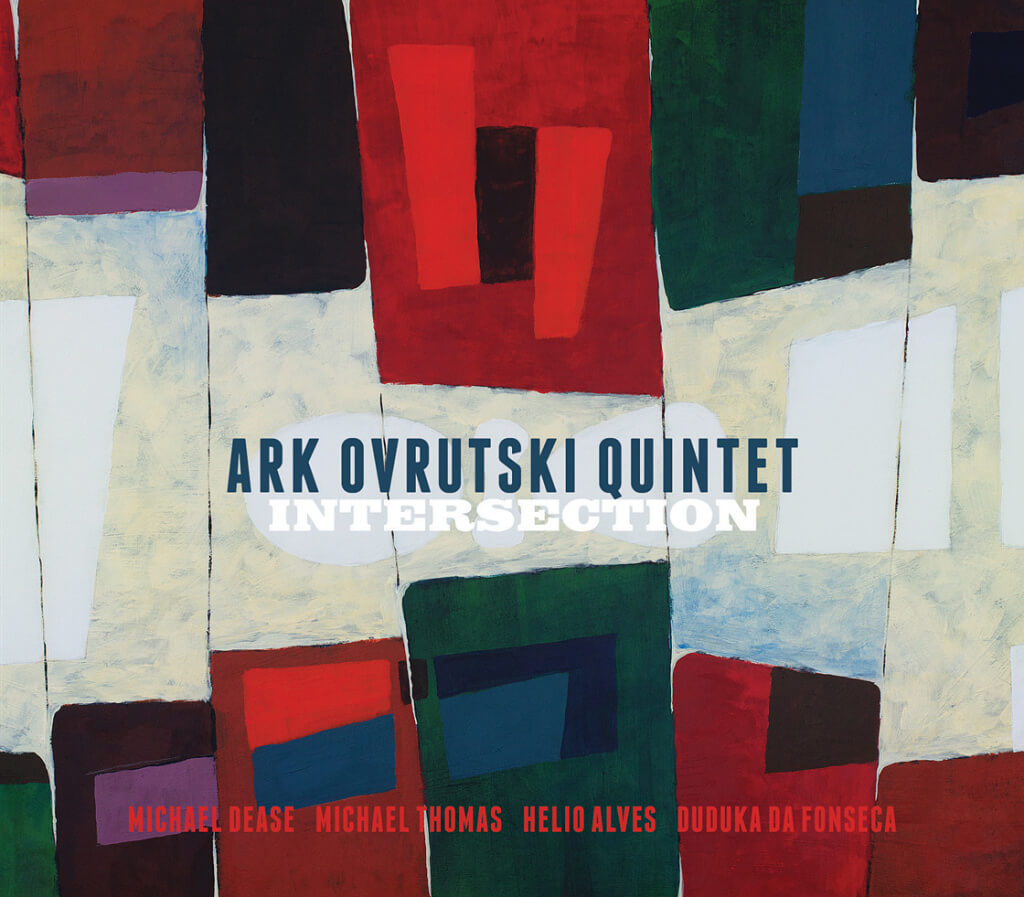He is certainly not alone. Hand in glove with drummer Duduka Da Fonseca, an impeccable partner whether laying back or tearing it up, Ark connects beautifully with pianist Helio Alves, and is ever-present for trombonist Michael Dease and saxophonist Michael Thomas, too. In Ark’s hands the bass is not simply the foundation of the band, it’s the nucleus. Like Mingus, about whom Ark did his doctoral thesis, this bassist charges those around him to spin in close orbit. So doing, he turns his colleagues into a cohesive unit, a multi-faceted sphere.
Michael Dease brings big, burry warmth to the group’s sound, and Michael Thomas a heaping measure of sass (both were featured on Ark’s prior release, 44:33). The indelible “Waltz for Debby,” written by the great pianist Bill Evans, is arranged or “choreographed” so that instead of the instruments pairing up, all five twirl in a sweetly seamless dance. Similarly, this quintet is so tight it can hang loose on Wayne Shorter’s irresistibly funky “Tom Thumb,” with Thomas’s soprano slithering over Ark’s stead ostinato and Dease’s staccato phrases setting up the bass’s spotlit solo entrance.
Alves, who played on Ark’s 2011 album Sounds of Brazil, sustains the repeated figure opening “La Mecha” (“the wick”), written by the late trumpeter Kenny Dorham and first recorded on Joe Henderson’s 1963 album Page One. Here the rhythm section coalesces around the Afro-Cuban hemiola – the clavé or 3/2 beat that conjures an underlying cycle, pulling up then plunging forward.
Da Fonseca, with whom Ovrutski has worked on various projects since 2007, contributes the wee-hours ballad “Manhattan Style,” splashing cymbals under the bassist’s initial statement while Alves, one of the drummer’s partners in the long-running Brazilian Trio, offers subtle counterpoint. It’s rare for a trombonist to follow a chorus of bass in compatible temperament, by Dease pulls off that feat – and Thomas is only heard at the track’s end, blending with the ‘bone while Ark bows his upright. Duduka has another hot spot at the start of “The Craft,” an upbeat tune written by Ark on which everyone blows.
Want to hear how a rhythm trio inspires a horn? Notice how Dease responds to Alves-Ovrutski-Da Fonseca’s combined comping with a “Whew!” at 2:15 – and then keeps fast-phrasing for a hand-off to the pianist, whose fleetness leads to the ensemble’s stop-time conclusion. Now for a lesson on the bass generating a song’s form and momentum: Ark’s “Twister,” with Dease and Thomas alternating rapid breaks, Da Fonseca reveling in the tempo and timbres of his well-tuned traps.
“Bolero” is a measured work, flugelhorn and soprano sax braided as in thoughtful reflection, and again Michael Dease and Michael Thomas demonstrate unanimity of mood despite divergent personal improvisations. Dease’s composition “Good and Terrible” carries a subdued, bittersweet note, but there’s nothing truly dour or downbeat about it — Ovrutski savors another opportunity to stretch out, with Alves empathetic in accompaniment. When Thomas steps to the fore, he’s more gregarious, and all adjust their energies to match. The out-chorus could almost be from another effort entirely, but the band ends Intersection as they started it: Together.
That conclusion is representative of Ark’s intention and accomplishment. He means to make music with all the nuance and technical finesse of Western classical tradition, with which he began, and all the spirited soulfulness of jazz, at which he’s arrived. He’s integrated musicians born in Brazil (Alves, Sao Paolo; Da Fonseca, Rio de Janiero) with players originally from Augusta, Georgia (Dease) and Gainesville, Florida (Thomas). These men range in age from early 30s to mid 60s, but these are more differences that don’t matter. They’ve convened, each adding something from their unique sensibility to create lively, lovely music. Connecting generations across continents, applying a current sense of swing to advance an enduring legacy, Ark Ovrutski is at the crux of jazz’s crucial intersection. – Howard Mandel
Howard Mandel, author of Future Jazz and Miles Ornette Cecil – Jazz Beyond Jazz, writes for many publications, reports for National Public Radio, blogs at ArtsJournal.com/JazzBeyondJazz and is president of the Jazz Journalists Association.

